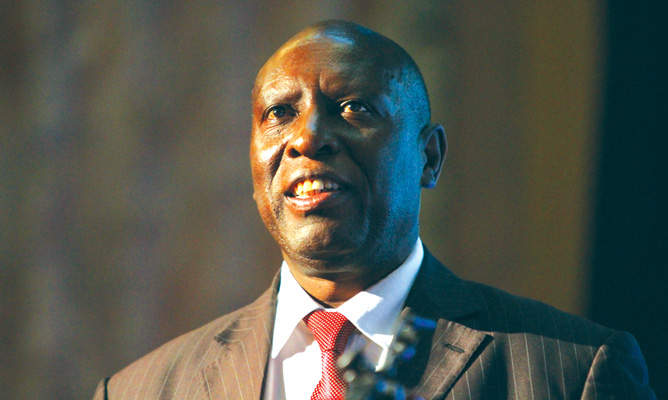
Energy and Power Development minister Samuel Undenge says there is need for an increase in electricity tariffs in Zimbabwe as they were lower than the cost of production.
BY TARISAI MANDIZHA
Speaking at a media briefing in Harare yesterday, Undenge said the Zimbabwe Electricity Transmission and Distribution Company and Zimbabwe Power Company had applied for tariff increases because the country no longer got cheap power from Kariba.
He said other power supplies from Hwange and imports were expensive.
“Economically, there should be a price increase, but whatever the increase that comes, it should be affordable to consumer, farmers and the industry. It should be sustainable that Zesa Holdings will be able to provide a steady supply of power to the market,” Undenge said.

“There is need for a tariff increase in Zimbabwe. The power tariffs in the country have been below the production cost of electricity and this has not been cost-effective.”
Undenge’s backing of the proposed tariff increase comes as industry and farmer bodies have warned that such a move would have dire consequences on the ailing economy.
- Chamisa under fire over US$120K donation
- Mavhunga puts DeMbare into Chibuku quarterfinals
- Pension funds bet on Cabora Bassa oilfields
- Councils defy govt fire tender directive
Keep Reading
The new tariffs are still to be approved by the Zimbabwe Energy Regulatory Authority.
National power demand is currently estimated at about 2 200 megawatts (MW) against available generation capacity of around 1 200 MW and installed capacity of 1 960 MW.
Undenge said electricity tariffs had not been reviewed for the past five years, while countries such as South Africa had been reviewing by 10% every year.
He said the static tariffs had made it impossible to invest in power projects.
“Against the background that Kariba Hydropower Station is going to produce less, it has the capacity to produce 750MW and because of the drought experienced this year, the generation has continued to go down,” he said.
Undenge said Kariba was producing 475MW and it went down to 275 MW beginning January, but it was expected to drop to 250MW. He said Zesa was carrying out consultations for the increase of electricity tariff in Zimbabwe.
“As you know, Zesa is carrying out consultations regarding electricity tariffs and that is expected to be completed by January 15, 2015 [today]. After making recommendations to the Energy and Power Development minister, the recommendations will be submitted to Cabinet, which will then decide what the tariff should be,” he said.
Undenge said government was working on a number of projects to increase power generation in the country. He said if domestic and commercial consumers were paying their debts to the power utility, the money would have been invested in a new power station.
“Zesa is owed about $1 billion by consumers because people do not pay their debts. If the debts were being paid up, we could have built a power station.”











